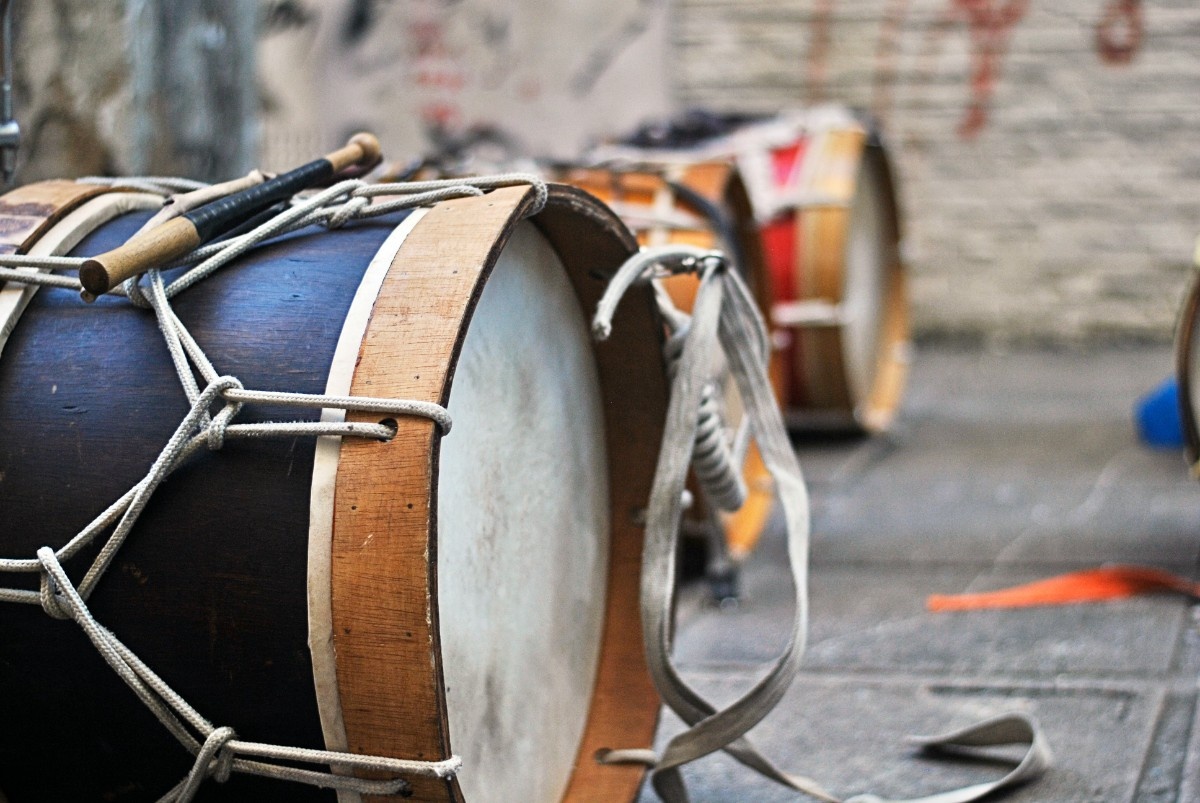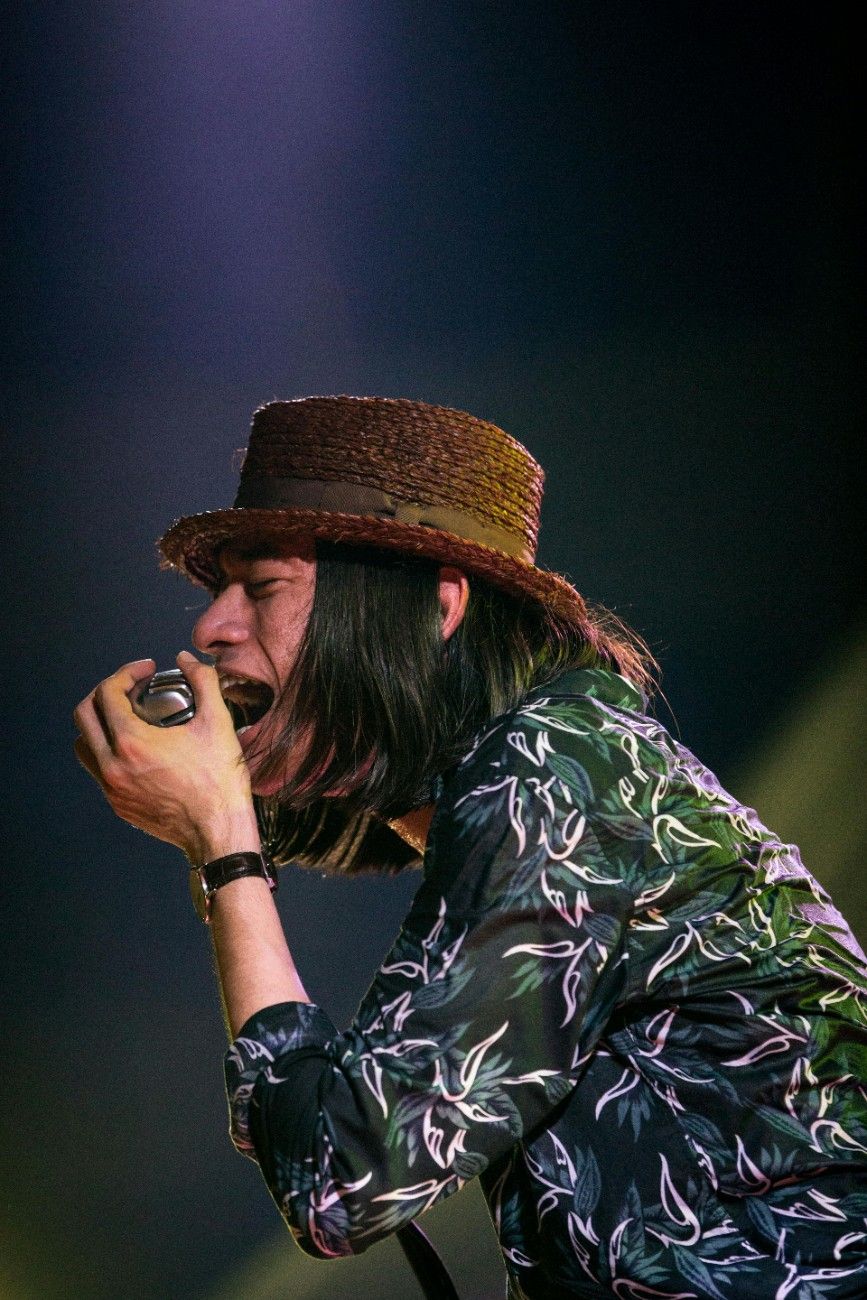Introduction to WOMAD Festival
WOMAD, or World of Music, Arts and Dance, is an international music festival that celebrates global culture and diversity through an eclectic mix of music, dance, and arts. Founded in 1980, WOMAD Festival has become a global phenomenon, attracting thousands of music enthusiasts and artists from around the world. The festival is known for its vibrant atmosphere, where people from different backgrounds come together to experience the richness of global music and culture.
WOMAD Festival showcases a wide range of musical genres, including traditional folk, fusion, and contemporary world music. The festival's lineup features both established and emerging artists from various countries, providing a platform for cultural exchange and artistic collaboration. In addition to music, WOMAD Festival also offers workshops, talks, and interactive sessions that allow attendees to learn about different musical instruments, dance styles, and cultural traditions.
The festival's inclusive and family-friendly environment makes it an ideal event for people of all ages. With dedicated children's activities and spaces, WOMAD Festival ensures that the joy of cultural discovery is accessible to everyone. The festival's laid-back atmosphere encourages attendees to mingle, share stories, and create lasting memories.
The Global Reach of WOMAD Festival
WOMAD Festival has expanded its reach over the years, hosting events in various countries around the world. From its flagship festival in the UK to satellite events in Australia, New Zealand, Spain, Chile, and more, WOMAD Festival has become a global brand synonymous with cultural diversity and artistic excellence.
The festival's international presence has helped to foster a network of musicians, artists, and cultural practitioners who share a common vision of celebrating diversity and promoting cross-cultural dialogue. By bringing together artists from different parts of the world, WOMAD Festival has played a crucial role in breaking down cultural barriers and promoting understanding and respect among people from diverse backgrounds.
The global reach of WOMAD Festival has also had a significant impact on the world music scene, helping to popularise genres and artists that may have otherwise remained obscure. The festival's commitment to showcasing a wide range of musical styles and traditions has contributed to the growth and development of world music as a distinct and respected genre.
The History and Evolution of WOMAD Festival
The Origins of WOMAD Festival
WOMAD Festival was founded in 1980 by English musician Peter Gabriel, along with Thomas Brooman and Bob Hooton. Gabriel, who had gained fame as the lead singer of the progressive rock band Genesis, had a vision of creating a festival that would bring together musicians from different parts of the world to share their art and inspire one another.
The first WOMAD Festival took place in 1982 at Shepton Mallet in Somerset, England. The festival featured a diverse lineup of artists, including Echo & The Bunnymen, The Beat, Drummers of Burundi, and Imrat Khan. Despite facing financial challenges in its early years, WOMAD Festival persevered thanks to its unique vision and dedicated following.
The Growth and Expansion of WOMAD Festival
As WOMAD Festival gained popularity, it began to expand its reach beyond the UK. In 1986, the festival held its first international event in Vancouver, Canada. This marked the beginning of WOMAD Festival's global expansion, with subsequent events taking place in various countries around the world.
Throughout the 1990s and 2000s, WOMAD Festival continued to grow and evolve. The festival incorporated a wider range of artistic expressions, including dance, poetry, and visual arts, further enriching its cultural offerings. The festival also began to place a greater emphasis on education and outreach, offering workshops and interactive sessions that allowed attendees to learn about different musical traditions and cultures.
In recent years, WOMAD Festival has embraced new technologies and platforms to reach wider audiences and engage with younger generations. The festival has expanded its digital presence, live-streaming performances and creating online content that allows people to experience the festival from anywhere in the world.
WOMAD Festival's Legacy and Impact
Over the past four decades, WOMAD Festival has left an indelible mark on the world music scene and global cultural landscape. The festival has been instrumental in launching the careers of many world music artists, providing them with a platform to showcase their talents to an international audience.
WOMAD Festival's commitment to promoting cultural diversity and understanding has also had a significant social impact. By bringing together people from different backgrounds and cultures, the festival has fostered a sense of unity and empathy, promoting cross-cultural dialogue and collaboration.
Moreover, WOMAD Festival has served as a model for other world music festivals around the globe, inspiring a network of events that celebrate cultural diversity and artistic excellence. The festival's success has demonstrated the power of music and arts to bridge divides and promote understanding in an increasingly interconnected world.
As WOMAD Festival looks to the future, it remains committed to its core values of celebrating cultural diversity, promoting artistic innovation, and fostering global understanding through music and dance. With its continued growth and evolution, WOMAD Festival is poised to remain a beacon of cultural exchange and a testament to the enduring power of music to bring people together.
The WOMAD Festival Experience
Immersing Yourself in World Music and Culture
Attending WOMAD Festival is an unforgettable experience that allows you to immerse yourself in a world of music, dance, and culture. The festival typically spans over a weekend, offering a diverse and vibrant program that showcases artists from various corners of the globe. From the moment you step into the festival grounds, you are transported to a global village where the air is filled with the sounds of exotic instruments, mesmerising rhythms, and enchanting melodies.
One of the highlights of the WOMAD Festival experience is the opportunity to discover new music and explore different cultural traditions. The festival's lineup features an eclectic mix of established and emerging artists, representing a wide range of genres and styles. Whether you're a fan of traditional folk music, contemporary world fusion, or anything in between, WOMAD Festival has something to offer. The festival's multiple stages host performances throughout the day and into the night, allowing you to create your own musical journey based on your interests and preferences.
In addition to the musical performances, WOMAD Festival also offers a range of workshops and interactive sessions that provide a hands-on experience of different cultural traditions. These workshops cover a variety of topics, from learning how to play a specific musical instrument to participating in a dance class or joining a drumming circle. The workshops are led by skilled practitioners and provide a unique opportunity to learn directly from artists and experts in their respective fields.
A Family-Friendly and Inclusive Atmosphere
One of the defining features of WOMAD Festival is its family-friendly and inclusive atmosphere. The festival welcomes attendees of all ages and backgrounds, creating a sense of community and shared experience. Children are an integral part of the WOMAD Festival experience, with dedicated activities and spaces designed to engage and entertain young festival-goers. The World of Children area offers a range of workshops, performances, and interactive installations that encourage children to explore and learn about different cultures in a fun and engaging way.
The festival's inclusive ethos extends beyond age, encompassing a celebration of diversity in all its forms. WOMAD Festival attracts a multicultural and multigenerational audience, united by a shared love of music and a desire to connect with others. The festival's laid-back and friendly atmosphere encourages attendees to mingle, share stories, and make new friends. Whether you're dancing alongside strangers at the main stage or striking up a conversation while queuing for food, WOMAD Festival fosters a sense of community and belonging that is truly unique.
Discovering New Tastes and Artisanal Crafts
In addition to the musical and cultural offerings, WOMAD Festival also provides a platform for discovering new tastes and artisanal crafts. The festival features a diverse selection of food and drink stalls, offering a range of international cuisines and locally sourced produce. From aromatic curries and sizzling stir-fries to delectable desserts and refreshing beverages, the festival's food offerings are a celebration of global gastronomy.
The festival's market area is another highlight, showcasing a variety of artisanal crafts and handmade products from around the world. Here, you can browse through stalls selling everything from colourful textiles and intricate jewellery to hand-carved instruments and unique art pieces. The market provides an opportunity to support independent artists and craftspeople while also discovering one-of-a-kind souvenirs and gifts.
The Malmesbury Location and Festival Grounds
A Picturesque Setting in the Heart of Wiltshire
The flagship WOMAD Festival in the UK is held annually at Charlton Park, a stunning 17th-century estate located near the historic town of Malmesbury in Wiltshire, England. The festival's postcode is SN16 9DG, making it easily accessible by road, with ample parking facilities available on-site. The estate's picturesque grounds provide a perfect backdrop for the festival, with lush green fields, wooded areas, and a beautiful lake creating an atmosphere of natural beauty and tranquillity.
The festival grounds cover an expansive area of over 150 acres, providing ample space for multiple stages, camping areas, food and craft stalls, and other amenities. The spacious layout of the festival allows attendees to easily navigate between different areas while also providing a sense of freedom and openness. The main stage, known as the Open Air Stage, is the focal point of the festival, hosting some of the most prominent and anticipated acts. Other stages, such as the Siam Tent, Charlie Gillett Stage, and BBC Radio 3 Stage, offer more intimate settings for discovering emerging talents and niche genres.
Camping and Accommodations
One of the most popular ways to experience WOMAD Festival is by camping on-site. The festival offers a range of camping options to suit different preferences and budgets. The general camping area is included in the price of a weekend ticket and provides a lively and social atmosphere. For those seeking a more luxurious experience, the festival also offers boutique camping options, such as pre-erected tents and tipis, which come with additional amenities and services.
For attendees who prefer not to camp, there are also a variety of off-site accommodation options available in the nearby town of Malmesbury and surrounding areas. These include hotels, bed and breakfasts, and self-catering cottages. The festival operates a shuttle bus service between the festival site and Malmesbury town centre, making it easy for attendees to travel to and from the festival grounds.
Exploring the Festival Grounds
The WOMAD Festival site is designed to provide a holistic and immersive experience, with a range of areas and activities to explore beyond the musical stages. The World of Wellbeing area offers a space for relaxation and rejuvenation, with workshops and sessions focused on yoga, meditation, and holistic therapies. The Arboretum is another peaceful area of the festival, providing a quiet space to escape the crowds and connect with nature.
For families, the World of Children area is a dedicated space offering a range of activities and workshops designed to engage and entertain young festival-goers. The area includes a kids' stage, arts and crafts sessions, storytelling, and interactive installations. The festival also provides a range of family-friendly amenities, such as baby-changing facilities and a lost children's point.
Throughout the festival grounds, attendees can also discover a variety of food and drink stalls, offering a range of international cuisines and locally sourced produce. The festival's commitment to sustainability is evident in its eco-friendly practices, with reusable cup schemes, recycling points, and a focus on reducing waste. The WOMAD Festival site is a vibrant and dynamic space that encourages exploration, discovery, and connection with others, creating a truly unique and memorable festival experience.
Notable Performers and Highlights
Legendary Artists and World Music Icons
Throughout its history, WOMAD Festival has attracted some of the biggest names in world music, showcasing legendary artists and iconic performers from across the globe. These artists have not only entertained festival-goers with their incredible talents but have also served as ambassadors for their respective cultures and musical traditions.
One such legendary artist is Youssou N'Dour, the Grammy Award-winning Senegalese singer and songwriter. Known for his powerful voice and socially conscious lyrics, N'Dour has graced the stages of WOMAD Festival multiple times, captivating audiences with his unique blend of African rhythms, pop, and rock. Another iconic performer is Paban Das Baul, the renowned Bengali baul mystic and musician. Das Baul's soulful and spiritually charged performances, accompanied by his traditional baul instruments, have been a highlight of WOMAD Festival, offering a glimpse into the rich musical heritage of Bengal.
Other notable artists who have performed from the WOMAD Festival lineup include Tinariwen, the Tuareg desert blues band from Mali; Baba Maal, the celebrated Senegalese singer and guitarist; and Amadou & Mariam, the blind musical duo from Mali who have achieved international acclaim with their infectious blend of African music and blues.
Discovering Emerging Talents and Hidden Gems
While WOMAD Festival is known for featuring established and legendary artists, it is also committed to showcasing emerging talents and hidden gems from around the world. The festival's programming team works tirelessly to curate a diverse and exciting lineup that introduces festival-goers to new and innovative sounds from lesser-known regions and cultures.
One such emerging talent is the Krar Collective, a trio of Ethiopian musicians who have taken the traditional krar lyre and infused it with contemporary influences to create a unique and electrifying sound. Another rising star is Sona Jobarteh, the Gambian kora virtuoso and singer who has been making waves in the world music scene with her innovative approach to the traditional West African harp.
WOMAD Festival has also been instrumental in introducing audiences to the rich musical traditions of the Pacific Islands, with performances by groups such as the Narasirato Pan Pipers from the Solomon Islands, who create hauntingly beautiful melodies using bamboo panpipes. Other hidden gems that have graced the stages of WOMAD Festival include the Aulochrom, a Polish duo that combines traditional Slavic instruments with electronic beats, and the Dhoad Gypsies of Rajasthan, who bring the vibrant music and dance traditions of the Rajasthani nomads to life.
Cross-Cultural Collaborations and Unique Performances
One of the most exciting aspects of WOMAD Festival lineup is the opportunity for cross-cultural collaborations and unique performances that bring together artists from different musical traditions and backgrounds. These collaborations often result in unexpected and magical moments that highlight the universal language of music and the power of artistic exchange.
For example, in recent years, WOMAD Festival has featured collaborations between Malian kora master Toumani Diabaté and Scottish folk musician Euan Burton, as well as a unique performance by the Benin-born singer Angélique Kidjo and the Metropole Orkest, a Dutch jazz and pop orchestra. These collaborations not only showcase the versatility and adaptability of different musical styles but also demonstrate the potential for music to bridge cultural divides and foster understanding.
Other unique performances at WOMAD Festival have included the Manganiyar Seduction, a musical and visual spectacle from India that features a 36-member ensemble of Rajasthani musicians performing in a multi-level, purpose-built structure, and the Ukulele Orchestra of Great Britain, a quirky and irreverent group that reimagines popular songs and classical pieces using only ukuleles.
Tickets, Accommodation, and Practical Information
Ticketing Options and Prices
WOMAD Festival offers a range of ticketing options to suit different budgets and preferences. The most popular option is the weekend ticket, which grants access to the festival for the entire duration of the event. Weekend tickets typically go on sale several months in advance, with early bird discounts available for those who book early. The festival also offers day tickets for those who can only attend for a specific day or who prefer not to camp on-site.
In addition to the standard weekend and day tickets, WOMAD Festival also offers various upgrades and packages, such as the WOMAD Spa, which includes access to a luxury spa and wellness area, and the Taste the World package, which includes a culinary tour of the festival's food stalls and a meet-and-greet with a celebrity chef.
Ticket prices for WOMAD Festival vary depending on the year and the type of ticket purchased. As of 2021, weekend tickets for the UK festival started at around £185 for adults, with discounts available for children and teens. Day tickets started at around £70 for adults. It is worth noting that ticket prices may change from year to year, so it is always best to check the official WOMAD Festival website for the most up-to-date information.
Accommodation Options: Camping and Off-Site
WOMAD Festival offers a range of accommodation options to suit different budgets and preferences. The most popular option is camping on-site, which allows festival-goers to fully immerse themselves in the festival experience and enjoy the convenience of being just a short walk away from the stages and amenities.
The festival offers several camping areas, including general camping, family camping, and accessible camping for those with disabilities. Festival-goers can choose to bring their own tents and camping equipment or opt for pre-erected tents and tipis, which come with additional amenities such as bedding and lighting.
For those who prefer not to camp, WOMAD Festival also offers a range of off-site accommodation options, including hotels, bed and breakfasts, and self-catering cottages in the nearby town of Malmesbury and surrounding areas. The festival operates a shuttle bus service between the festival site and Malmesbury town centre, making it easy for festival-goers to travel to and from the festival grounds.
Practical Information: Getting There, Accessibility, and Sustainability
WOMAD Festival takes place at Charlton Park, a stunning 17th-century estate located near the historic town of Malmesbury in Wiltshire, England. The festival's postcode is SN16 9DG, and it is easily accessible by road, with ample parking facilities available on-site. The festival also operates a shuttle bus service from the nearest train station, Chippenham, which is approximately 30 minutes away.
The festival is committed to making the event as accessible and inclusive as possible, with a range of facilities and services available for those with disabilities. These include accessible camping areas, viewing platforms, and a dedicated access team that provides support and assistance throughout the festival.
WOMAD Festival is also committed to sustainability and minimising its environmental impact. The festival has implemented a range of eco-friendly initiatives, such as reusable cup schemes, recycling points, and a ban on single-use plastics. Festival-goers are encouraged to bring their own reusable water bottles and to use the festival's water refill points to reduce waste.
Other practical information to keep in mind when attending WOMAD Festival includes the festival's cashless payment system, which allows festival-goers to pay for food, drinks, and merchandise using a pre-paid wristband, and the festival's mobile app, which provides up-to-date information on the lineup, schedule, and amenities.
WOMAD's Global Impact and Legacy
Promoting Cultural Exchange and Understanding
WOMAD Festival has had a profound impact on the world music scene and global cultural landscape since its inception in 1980. The festival's commitment to showcasing diverse musical traditions and promoting cultural exchange has helped to break down barriers and foster understanding between people from different backgrounds.
By bringing together artists and audiences from around the world, WOMAD Festival has created a platform for cross-cultural dialogue and collaboration. The festival has been instrumental in introducing audiences to new and unfamiliar musical traditions, helping to broaden cultural horizons and challenge preconceptions. Through its workshops, talks, and interactive sessions, WOMAD Festival has also provided opportunities for deeper engagement and learning, allowing festival-goers to gain a greater appreciation and understanding of different cultures.
The impact of WOMAD Festival extends beyond the festival grounds, with many artists and collaborations forged at the festival going on to have a lasting impact on the world music scene. The festival has helped to launch the careers of countless artists from around the globe, providing them with exposure to new audiences and opportunities for international touring and collaboration.
Supporting Local Communities and Economies
In addition to its cultural impact, WOMAD Festival has also had a significant economic and social impact on the communities that host the event. The festival generates significant revenue for local businesses, including hotels, restaurants, and shops, providing a boost to the local economy.
WOMAD Festival also creates employment opportunities for local residents, with many people working as vendors, security staff, and production crew during the festival. The festival's commitment to using local suppliers and contractors wherever possible helps to keep the economic benefits of the event within the community.
Beyond its economic impact, WOMAD Festival also has a positive social impact on the communities it visits. The festival's inclusive and participatory ethos encourages community engagement and volunteering, with many local residents and organisations getting involved in the planning and running of the event. This helps to foster a sense of pride and ownership in the festival, strengthening community bonds and promoting social cohesion.
Inspiring a Global Movement
The success of WOMAD Festival has inspired a global movement of similar events and initiatives aimed at promoting cultural diversity and understanding through music and the arts. Today, there are dozens of world music festivals around the globe that owe a debt to the pioneering work of WOMAD Festival, from the Festival in the Desert in Mali to the Rainforest World Music Festival in Malaysia.
Beyond the world music scene, WOMAD Festival has also had an impact on broader cultural and social movements. The festival's commitment to sustainability and environmental responsibility has inspired other events and organisations to adopt more eco-friendly practices, while its emphasis on inclusivity and accessibility has helped to promote greater diversity and representation in the arts.
Perhaps most importantly, WOMAD Festival has demonstrated the power of music and culture to bring people together and promote positive change in the world. Through its celebration of diversity, creativity, and shared humanity, WOMAD Festival has helped to build bridges of understanding and respect between people from all walks of life, leaving a lasting legacy of cultural exchange and global cooperation.
The Future of WOMAD Festival
Embracing Innovation and New Technologies
As WOMAD Festival looks to the future, it remains committed to embracing innovation and new technologies to enhance the festival experience and reach new audiences. In recent years, the festival has expanded its digital presence, live-streaming performances and workshops to allow people from around the world to experience the festival from afar.
Moving forward, WOMAD Festival is exploring new ways to use technology to create immersive and interactive experiences for festival-goers. This could include the use of virtual and augmented reality to transport audiences to different cultural environments, or the development of mobile apps and digital platforms that allow for greater engagement and participation.
At the same time, WOMAD Festival is also committed to preserving the unique and intimate atmosphere that has made it such a beloved event over the years. The festival will continue to prioritise the in-person experience, providing opportunities for face-to-face interaction and collaboration between artists and audiences.
Expanding Educational and Outreach Programs
WOMAD Festival has always been more than just a music festival; it is also an educational and cultural institution that seeks to promote greater understanding and appreciation of the world's diverse musical traditions. In the future, the festival plans to expand its educational and outreach programs to reach even more people, particularly young people and underserved communities.
This could include the development of new workshops and interactive sessions that allow participants to learn about different musical instruments, dance styles, and cultural traditions in a hands-on way. The festival may also partner with schools and community organisations to bring world music education programs to a wider audience, helping to foster a new generation of global citizens and cultural ambassadors.
WOMAD Festival is also exploring ways to use its platform to support and amplify the voices of marginalised and underrepresented communities around the world. This could include showcasing artists and cultural traditions from regions that are often overlooked in the mainstream media, or partnering with organisations that work to promote social justice and human rights.
Building a Sustainable and Equitable Future
As WOMAD Festival continues to grow and evolve, it remains committed to building a sustainable and equitable future for all. The festival has already taken significant steps to reduce its environmental impact, including implementing waste reduction and recycling programs, promoting the use of public transportation and car-sharing, and sourcing food and materials from local and sustainable suppliers.
In the future, WOMAD Festival plans to go even further in its sustainability efforts, exploring new technologies and practices that can help to minimise its carbon footprint and promote greater environmental responsibility. This could include the use of renewable energy sources to power the festival, the development of more eco-friendly staging and production methods, and the promotion of plant-based and locally sourced food options.
At the same time, WOMAD Festival is also committed to promoting greater equity and inclusion in the music industry and beyond. The festival will continue to showcase a diverse range of artists and cultural traditions, with a particular emphasis on supporting emerging and underrepresented talent. The festival will also work to create more opportunities for women, people of colour, and other marginalised groups to participate in and lead the festival, both on and off the stage.
As WOMAD Festival looks to the future, it remains guided by its founding principles of cultural exchange, artistic innovation, and global cooperation. By embracing new technologies, expanding its educational and outreach programs, and building a more sustainable and equitable future, WOMAD Festival is poised to continue its legacy as a beacon of hope and unity in an increasingly divided world.
Related Articles

Let us know you agree to cookies
We use marketing, analytical and functional cookies as well as similar technologies to give you the best experience. Third parties, including social media platforms, often place tracking cookies on our site to show you personalised adverts outside of our website.
We store your cookie preferences for two years and you can edit your preferences via ‘manage cookies’ or through the cookie policy at the bottom of every page. For more information, please see our cookie policy.








